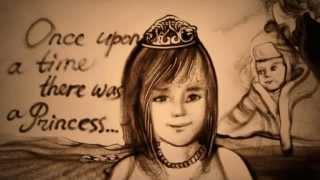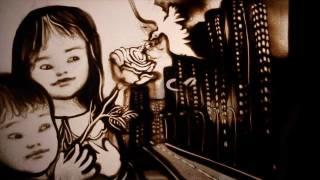These days art has developed many branches, many streams and genres, which involve people with all kinds of skills and talents. It is interesting to see how, in the contemporary world, there is a chance for everyone to engage in the process of artistic self-expression and self-realisation. There are people, who play music using glass vessels filled with water as the instruments, there are masters, who create their sculpture using very unusual materials such as fire, or ice or tree leaves, there are abstractionists in painting, there is the art of installation and performance. All of these genres are popular these days and involve many people.
Contemporary art is deep and full of meaning. The life in the modern world has changed, it became faster, started to have more layers, more sense. Our technological progress taught us to save the effort and include more meaning and more use into one movement, one action. We have access to loads of information, and our life became so much more productive. This created a serious impact on modern art too. Modern artists are fond of 3D pictures, hyper-realism, moving or flexible sculptures. Contemporary pieces of art have multiple characteristics and carry many functions; they possess several different sides and are designed to present deep messages. One of such genres of contemporary art is sand animation.
Sand animation is starting to earn its popularity and win its fans all over the world. The concept of sand art includes animated films, which are being created with the help of sand and, and the artist’s live performance. This is a practice where cinematographic, visual and aesthetic features are used in order to create an animation. This genre allows artists to combine several different ways of self-expression. This direction of art could be classified as modern and contemporary art because it is impressionistic, and it is being created during our lifetime.
The works of sand animators are filled with motion and moods; they are moving pictures, created quickly and right in front of the audience. This allows the viewers to percept the pieces of art on a more intimate level because they get to observe the birth of each image and its transformation into the next picture, it is like watching the evolution of the artist’s thoughts. Seeing a sand artist perform, the audience feels connected to the master’s ideas and thought process.
It is almost like seeing a 3D movie, which allows the viewer to feel like they are in the very middle of all the actions. Such a deep level of participation lets the artists touch the hearts of their audience, create emotions and lead the viewers through the story. The simplicity of this art is mesmerising; a good artist will be able to express passion, anger, sadness, affection only using their hands and sand. This kind of art requires a fine technique and excellent skills from the artist because the artist has to work right in front of the observers, who get to see every movement and every picture in the moment of its creation. The artist has no right to make a mistake; otherwise, it would ruin the mood, create a delay and spoil the impression from the whole work.
The show of a sand artist includes a video that allows the audience to see the process of the creation of the piece; it also is accompanied by special music, and, of course, the art work’s essential part is animation or drawing with sand. This kind of performance is unique and captivating on many levels though there are arguments if this art should be called animation or just a video of a person drawing with sand.
Among the sand artists, there are several that stand out the most. I picked one I particularly liked. The artist’s name is Kseniya Simonova. Kseniya is twenty-eight years old, and she lives in Ukraine. Kseniya also has a passion for literature and poetry; this is why her sand stories are so deep and meaningful. Kseniya is the author of many beautiful creations such as “Run for Lebanon” or “To return her Childhood.” The artist speaks about environmental protection in “Beautiful Morocco.” Kseniya also gave a charity concert in Denmark. For this paper, I viewed several of her works, and I am going to discuss three of them.
First work of Kseniya Simonova I looked at is called “In Search of a Miracle”. The work was made to carry a message about the danger of cancer and about the families that were touched by this tragedy. The story is about a girl who has cancer. The artist used music and drawing during her performance. The music is a very important part of the work because it is employed to alter the viewer’s mood, emphasise the emotional part of the show, which is crucial for any artwork. Music used by Kseniya Simonova is classical; it is not a song and does not have lyrics. The music changes through the video. At the beginning of the show the main character of the piece, the girl named Evelina, is portrayed as a princess and the music is light and cheerful, reflecting the fairytale landscape that appears on Kseniya’s light board.
When the girl turns into a broken down cancer patient, the music changes in order to pass the emotional tension to the audience, make them feel the sadness of the situation. The artist skillfully creates the images of the girl’s dreams that never came true because of her illness. Kseniya also manages to show the flow of time through her sand animation; she draws significant symbols of various seasons. The video is designed to skip certain moments of the artist’s work in order to create the effect of animation and movement on the screen. This kind of editing is also used to avoid too long pauses during the artist’s performance, which would cause the delay and ruin the mood of the viewer. The flow of Kseniya’s work never slows down; this is done to keep the audience’s attention and captivate them more effectively.

The next work of Kseniya Simonova is called “Fight”. It is made in a very special style. It has a calm and harmonious mood and the music chosen to accompany the show is quiet and soothing. The theme of this performance is dreaming. The work portrays various abstract images surrounded by the romantic atmosphere. The beauty of this work is in its effortlessness and flowing structure. The images are transformed; one picture grows out of another. This creates a magical and touching mood. The images on the light board seem to be taken out of people’s dreams and visions. The work is filled with love and romance. We see sleeping children, people in love, animals in couples, underwater life. All of the characters appear on the screen for seconds to show closeness, partnership, peace and love to the audience. These are the things everyone is dreaming about.
Watching this work is like observing your own dreams and reveries. The power of the emotional side of this performance is amazingly strong and inspiring. Kseniya often uses writing in her works to emphasise her message to the audience. In the previous video, the story of the princess was written in Russian and in English. In this work, there is just one message, and it appears at the very end of the work. The message says “Fly… You can.” Kseniya suggests the audience to continue dreaming because, in their dreams, people are able to do anything, there are no limits in the world of dreams – everything is possible, even flying.

One more work by Ksenia Simonova I would like to discuss is called “Life Always Wins”. This show is dedicated to the tragedy that happened in 2011 in Japan when a massive earthquake hit the country. The earthquake measured 9.0 on the Richter Scale and took more than fifteen thousand lives. Kseniya did not remain indifferent towards this catastrophe and created an artwork, which was designed to reflect the artist’s feelings about the tragedy and send an optimistic and compassionate message to the people, whose lives were affected by the incident. The story begins with a peaceful image of Fuji mountain and the other symbols of Japan, such as cherry trees in blossom. The music is a mix of modern rhythms and traditional Japanese melodies meant to emphasise the beauty of the country.
Then the drawings of a little girl and her mom appear, they are happy at first, and then their faces change, there are fear and horror of the catastrophic events Japan experienced. The images of ruination and chaos shake the emotions of the viewers. The music adds to the tension; the sounds Kseniya uses during this part of her work are almost like from a horror movie. The face of a crying child is drawn next to the hazard symbol, this is the peak of the drama, but soon the hazard symbol is transformed into the shining sun, and the child starts to smile. The video ends with the images of smiling children, flowers and newly built houses. Kseniya writes a message saying “Life always wins”, which is accompanied by the children’s laughter.

These fantastic works are so powerful that they are able to make the viewers cry. The effects Kseniya Simonova and other sand artists achieve using the combination of animation, drawing, music, written messages, live performance and video are impressive. This type of art is relatively new, and it already is becoming super popular all over the world. This art wins the hearts of the viewers by its dynamic nature and the artist’s constant presence in the performance. Sand artists work in complete darkness, and this adds to the dramatic effects that are the purpose of this work. The stories the authors of sand animations create are visually very powerful and create a big impact on the audience. After seeing one live performance of a talented sand artist, the viewers will want to come back again.
Bibliography
“About Sand Art”. Sand-Artist. 2014. Web.
“About Sand Drawing”. The Moving Sand. 2014. Web.
“Beautiful Morocco”. YouTube video, 9:21. Posted by Kseniya Simonova. 2013. Web.
“Charity Concert of Kseniya Simonova in Vejle, Denmark”. YouTube video. Posted by Kseniya Simonova. 2013. Web.
Esaak, Shelley. “What is Contemporary Art?”. About.com. 2014. Web.
“Flight by Kseniya Siminova”. YouTube video. Posted by Kseniya Simonova. 2013. Web.
“In Search of a Miracle”. YouTube video. Posted by Kseniya Simonova. n. d. Web.
“Japan Earthquake – Tsunami Fast Facts”. CNNWorld. 2014.
“Japanese Earthquake 2011”. Geography. 2014. Web.
“Lady of the Sand”. Simonova TV. 2014. Web.
“Life always wins”. YouTube video. Posted by Kseniya Simonova. 2012. Web.
“Life Story, Written in the Sand”. SandFantasy. 2014. Web.
Sanders, Adrien-Luc. “What Is Sand Animation?”. About.com. 2014. Web.
“To Return Her Childhood”. YouTube video, 6:36. Posted by Kseniya Simonova. 2012. Web.
“What is Sand Art?” SandPictures. 2014. Web.